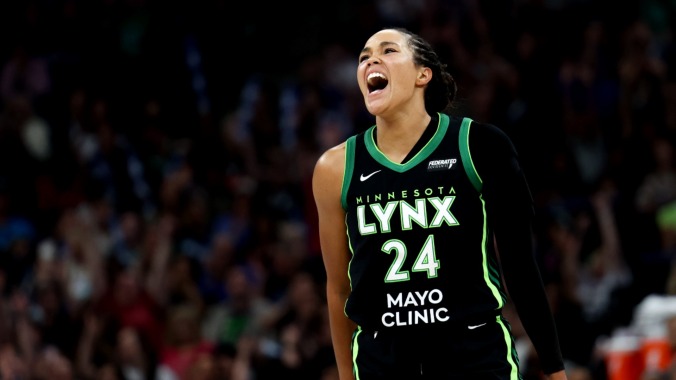The WNBA Contract Negotiations Are as Intense as the Finals
But Minnesota Lynx forward Napheesa Collier is proving herself a labor rights legend.
Photo: Getty Images Sports
Game three of the WNBA Finals between the Las Vegas Aces and the Phoenix Mercury is on Wednesday, October 8, but the battle between the league’s players and its leadership looms. On October 31, the collective bargaining agreement between WNBA players and the league expires, and the best female basketball players in the world are seeking major changes to their contracts after the league’s massive growth and persistent refereeing issues.
Napheesa Collier, a forward for the Minnesota Lynx (the top-ranked team going into the playoffs, though they were eliminated last week) and vice president of the union’s executive board, had some choice words at her season-ending press conference on September 30.
“I’d like to congratulate the Mercury for advancing to the finals. I want to be clear that this conversation is not about winning or losing. It’s about something much bigger,” she read from a prepared statement, “The real threat to our league isn’t money. It isn’t ratings or even missed calls or even physical play. It’s the lack of accountability from the league office.”
-

-

-

-

-

-

-

-

-

-

-

-

-

-

-

-

-

-

-

-

-

-

-

-

-

-

-

-

-

-

-

-

-

-

-

-

-

-

-

-








































